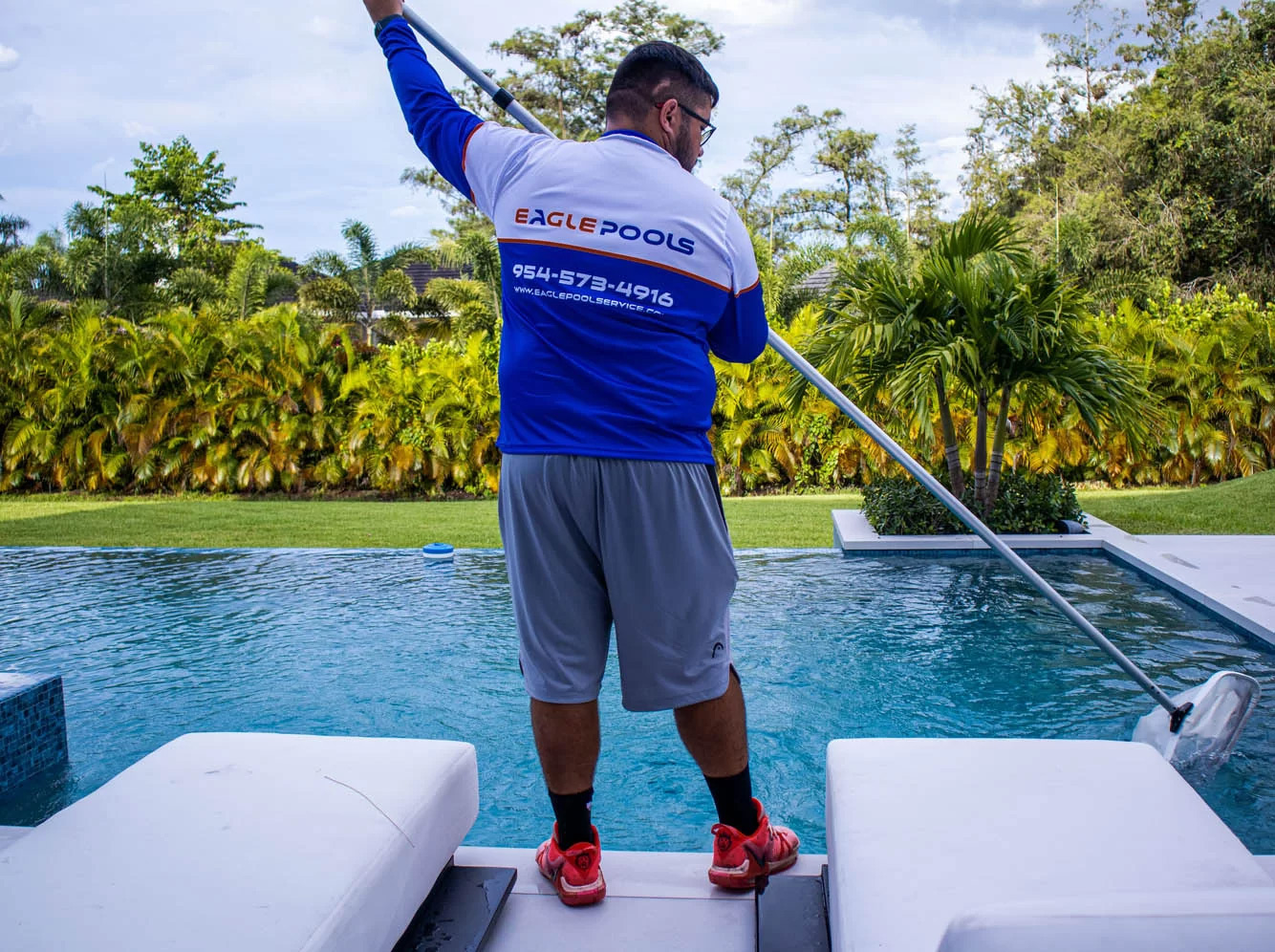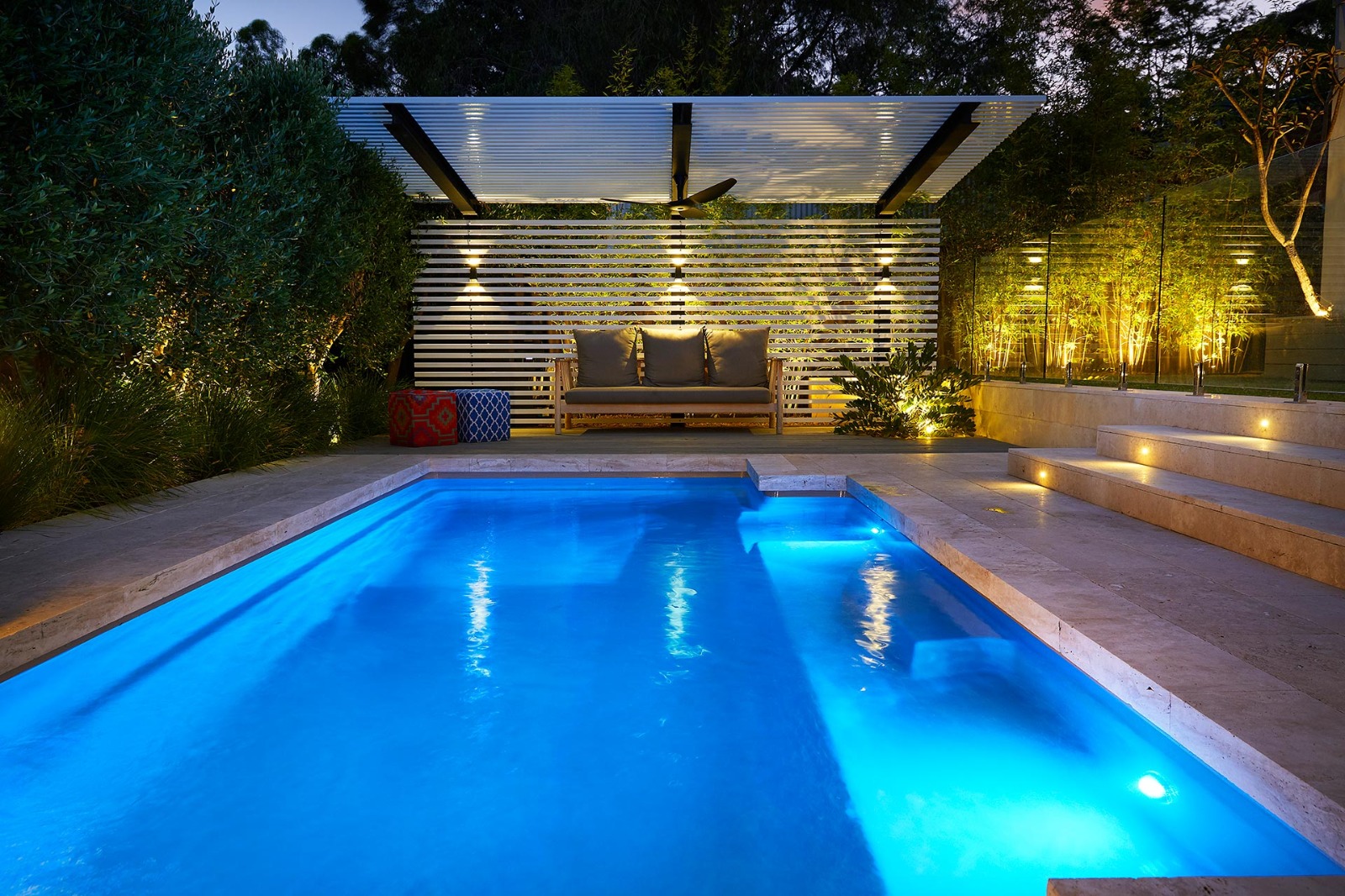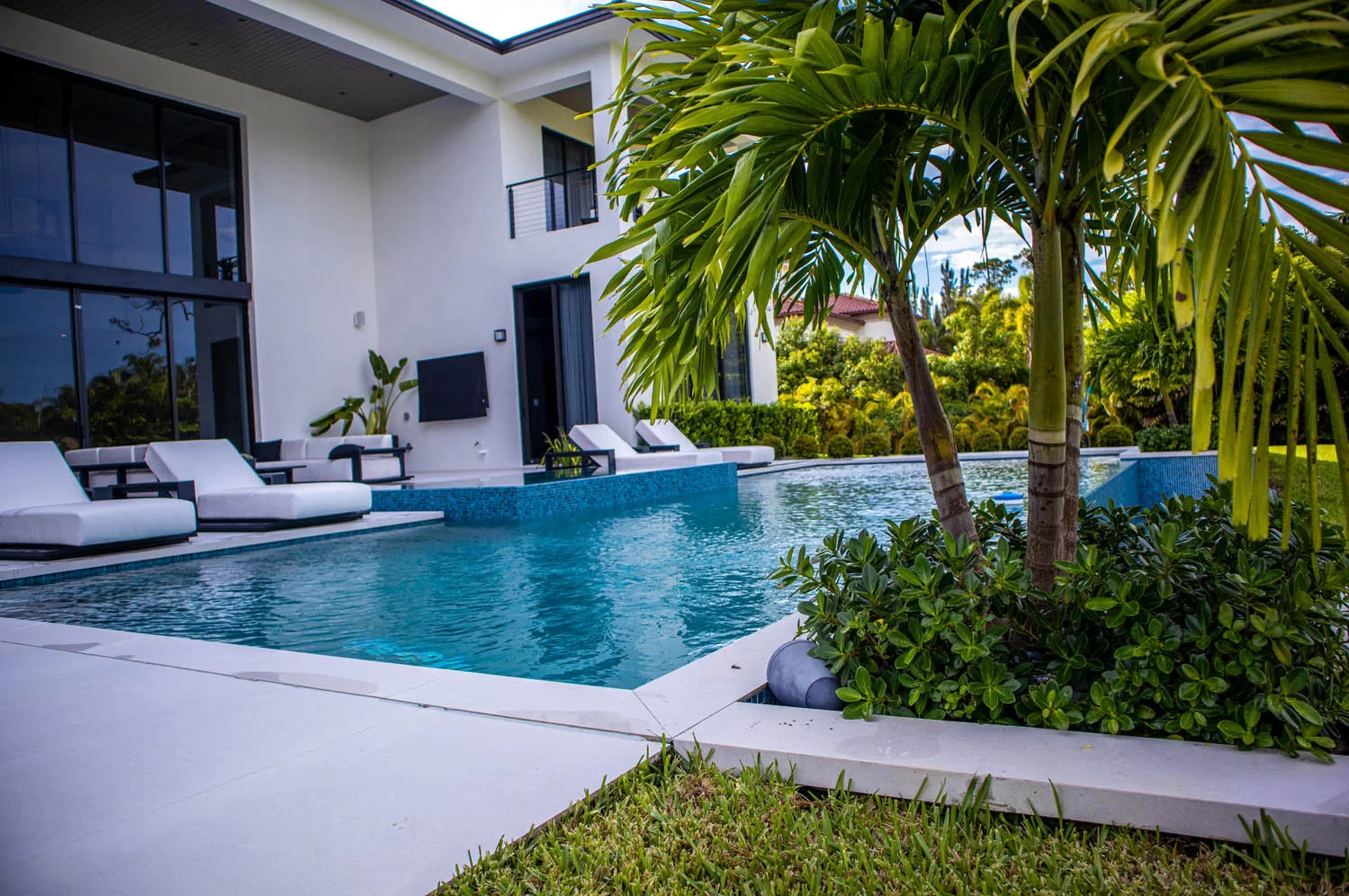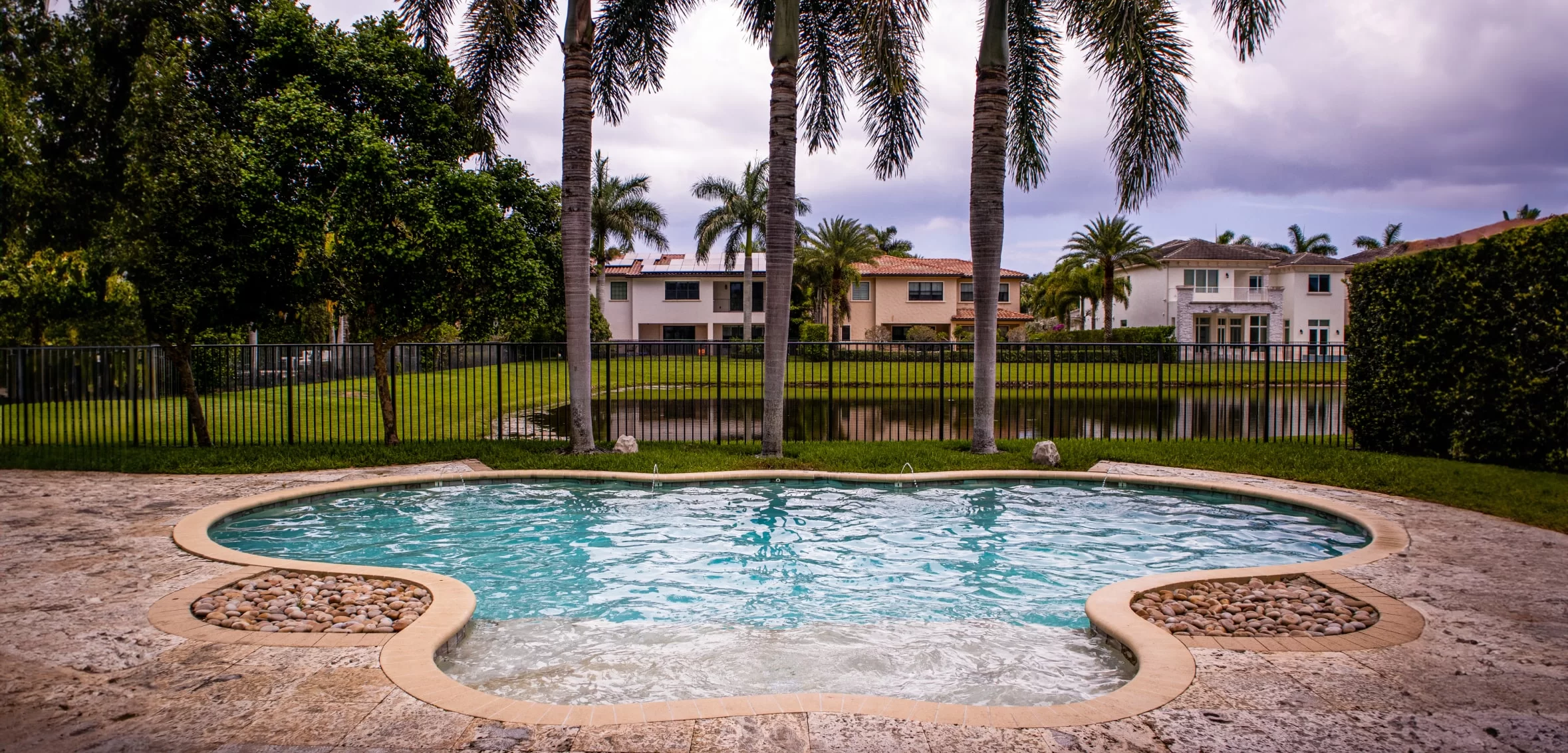If you want to have an enjoyable swimming pool experience your pool/spa needs to be filled with a properly balance water. That protects the pool system from chemical corrosion and equipment damage and also ensures and optimizes the disinfection process.
Before making any changes trying to adjust the chemicals you will need to test the water levels. The best way to measure the chemicals is to take a sample of your pool water to a professional store. You can easily misread a test strip.
There are 5 main factors that need to be measured: pH, total alkalinity, calcium hardness, chlorine and stabilizer.
In simple terms, we will guide you in this process:
pH
If swimmers are complaining of burning or red eyes the pH level is probably high or low. The recommended pH level is 7.4 to 7.6. The acceptable range is 7.2 to 7.8. though, which is about the same as the pH levels of human tears (7.4). To keep pH level where it should be the total alkalinity is like an anchor.
Total alkalinity
The water becomes cloudy if the total alkalinity levels are too high. To lower that level it can be a time consuming. With the filter off add acid, liquid or dry, a little at a time. The alkalinity levels can be modified depending on high user loads or acid rains. Low alkalinity can cause corrosion of the pool wall surfaces. The process to raise this level can be slow also. We recommend that you add sodium bicarbonate at the rate of 1.4 pounds per 10,000 gallons.
Calcium hardness
The ideal level for calcium hardness is 200 to 400 ppm. We recommend a monthly calcium test and every time you add water or chemicals to the pool. To increase the level use calcium chloride at the rate of 1.2 pounds per 10,000 gallons. To decrease the level is very difficult due to the big volume of water in a swimming pool. You will need to drain the existing pool water a little and replace with source water to reduce calcium hardness. Cloudy water, clogged filters, rough pool surfaces are signs of high calcium hardness.
Chlorine
You must know that chlorine is the most common chemical used to disinfect swimming pool water. The liquid chlorine it quickly kills pathogens, bacteria, algae, etc. We also recommend that you use a chlorine in tablet (trichloro-stabilizer-acid). It helps to maintain the other chemicals in a good level during a week because they are slow-dissolving. You can buy a floater, available at any pool supply store. Never put a tablet into your swimming pool skimmer basket. Two and half gallons a week should be enough for an average pool size (15×30).
Stabilizer
Cyanuric acid, also known as stabilizer needs to be present in the water in sufficient concentrations to prevent the elimination of the chlorine by the sunlight. The ideal range level for residential pools is 40 to 80 ppm. If the stabilizer is low you will need to add a lot more chlorine. If it is too high you will need to drain the pool and add source water to bring the level back to ideal.
It seems too complicated? Need help on this job? No problem! Give us a call! We can easily do that for you. Eagle Spa an& Eagle Pools Services (954-573-4916).
Palm Beach and Broward County (Boca Raton, Coral Springs, Davie, Delray Beach, Hollywood, Parkland, Pompano Beach, Miramar, Tamarac, Weston and surrounding areas) have the expertise to make you swimming pools shine and clear.
boca raton pool maintenance, pool cleaning service, pool maintenance coral springs, pool service boca raton, swimming pools boca raton fl




